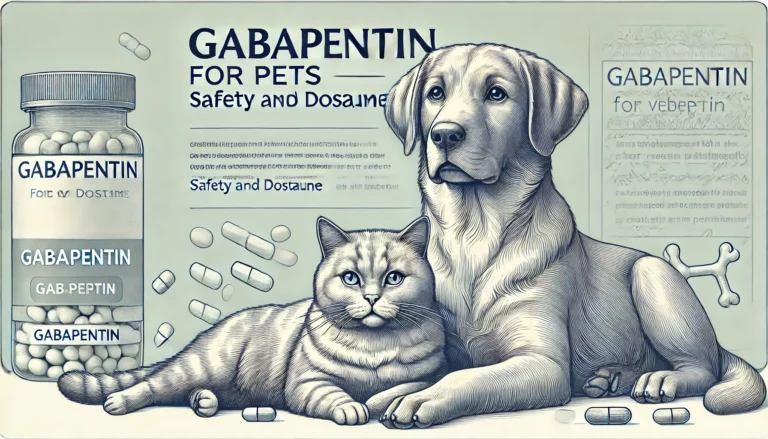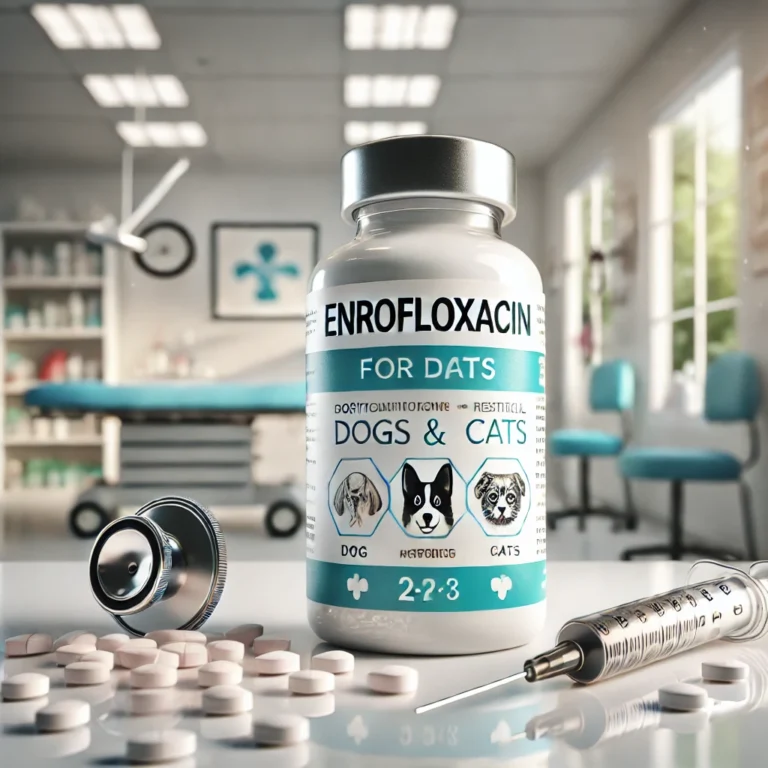fenbendazole (Panacur®, Safe-guard®) for dogs and cats

Fenbendazole is a widely used anthelmintic or dewormer, commonly recognized under the brand name Panacur. It plays a crucial role in the treatment of parasitic infections in dogs and cats, ensuring the health and well-being of these animals. This article offers a detailed look into its uses, benefits, dosage guidelines, and safety for both dogs and cats.
Understanding Fenbendazole and Its Importance in Veterinary Medicine
What is Fenbendazole?
Fenbendazole is part of the benzimidazole class of anthelmintics. It is effective against a range of parasitic worms, including hookworms, roundworms, whipworms, and certain types of tapeworms. It works by disrupting the cellular structures of the parasites, leading to their death. It is available in various forms, such as Panacur C, a popular formulation used in canines.
Fenbendazole for Dogs: Panacur for Dogs and Its Applications
For dogs it is crucial in maintaining canine health by treating and controlling parasitic infections. Products like Panacur C canine dewormer are specifically designed for easy administration and effective treatment of common parasites found in dogs. The safety of it, even for puppies, makes it a preferred choice among veterinarians.

Dosage Guidelines for Fenbendazole: Ensuring Effective Treatment
Proper Dosage and Administration of Fenbendazole
Administering the correct dosage is essential for its efficacy. The standard dosage for dogs typically involves 50 mg/kg of body weight over a course of 3-5 days, depending on the severity of the infection. For cats, the dosage might vary, and products like Panacur for cats are tailored to meet their specific needs.
| Weight of Pet (kg) | Dosage (mg) per Day | Duration (Days) |
|---|
| 1-5 | 50 | 3 |
| 5-10 | 100 | 3 |
| 10-20 | 200 | 3 |
| 20-30 | 300 | 3 |
| >30 | 400 | 3 |
The Safety Profile of Fenbendazole: Side Effects and Precautions
While it is known for its safety, understanding its side effects is vital for responsible pet care. Side effects in both dogs and cats are rare but may include mild gastrointestinal discomfort. Overdose risks are low, but proper dosing is crucial to avoid any potential adverse effects.
Fenbendazole for Cats: Treating Parasitic Infections in Felines
Cats benefit significantly from it, especially products like Panacur for cats, which are effective against a broad range of parasites. For cats it helps treat conditions like giardiasis, which is particularly challenging in multi-cat households.
Do you know?
Dogs humping humans isn’t just quirky behavior—it’s a complex display of dominance, excitement, or stress, demanding immediate attention and proper training!
The Role of Fenbendazole in Managing Parasite Resistance
Resistance management is critical in maintaining the efficacy of the medicine. Strategies such as rotating dewormers and adhering to prescribed treatment regimens help prevent the development of resistance, ensuring that it remains a reliable option for parasite control.
Comparison of Fenbendazole Products
This table compares different products containing fenbendazole, highlighting their uses and formulations.
| Product Name | Formulation | Common Use |
|---|---|---|
| Panacur C | Granules | Dogs |
| Safe-guard Dewormer | Liquid | Dogs, Cats |
| Panacur for Cats | Tablet | Cats |
Legal and Regulatory Aspects of Fenbendazole Use
Understanding the regulatory environment is essential for compliance and safety. The medicine, including products like Panacur and Safe-guard dewormer, are regulated to ensure they meet safety standards for use in pets. In the U.S., it is FDA approved, reflecting its recognized safety and effectiveness.
Conclusion: Fenbendazole as a Keystone in Veterinary Parasite Control
Fenbendazole plays an indispensable role in the health management of dogs and cats. Its broad-spectrum activity, safety profile, and effectiveness make it a cornerstone in veterinary parasite control strategies. Whether it’s Panacur for dogs or fenbendazole for cats, this medication ensures that pets lead healthier, parasite-free lives.
What is a 5-day course of fenbendazole?
A 5-day course of the medicine is a treatment regimen where the medication is administered daily for five consecutive days. This protocol is typically used for more severe or stubborn parasitic infections in animals, ensuring a thorough eradication of the parasites.
Can I give fenbendazole to my cat?
Yes, it can be given to cats for the treatment of various gastrointestinal parasites such as roundworms, hookworms, and certain tapeworms. It is important to use the correct dosage and formulation specifically meant for cats, as prescribed by a veterinarian.
How quickly does fenbendazole work for cancer?
The medicine has been explored in research for its potential anti-cancer properties, primarily in experimental settings and not widely in clinical practice. The effectiveness and how quickly it works can vary widely based on the type of cancer and the study design. More research is needed to establish its efficacy and speed of action in treating cancer.
Can fenbendazole be given to dogs?
Yes, it is commonly prescribed for dogs to treat a range of parasitic infections, including those caused by roundworms, hookworms, whipworms, and certain tapeworms. It is considered safe and effective when used according to veterinary guidance.
What are the negative side effects of fenbendazole?
It is generally safe with a low risk of side effects. However, some animals may experience mild gastrointestinal upset, such as diarrhea or vomiting. Rarely, allergic reactions can occur. If any severe or unusual symptoms appear, it is important to contact a veterinarian immediately.
What parasites are killed by fenbendazole?
It is effective against a variety of gastrointestinal parasites, including roundworms, hookworms, whipworms, and some tapeworms. It also has efficacy against certain protozoa like Giardia, making it a versatile antiparasitic treatment in veterinary medicine.
Can fenbendazole be harmful to humans?
It is primarily used in veterinary medicine and not approved for human use by major regulatory agencies like the FDA. While it has been investigated for potential uses in treating cancer, using it without medical supervision can be harmful due to possible interactions and side effects.
Are fenbendazole and albendazole the same?
No, both are not the same. Both belong to the benzimidazole class of antiparasitic agents and have similar mechanisms of action, but they are different compounds and have different spectrums of activity and pharmacokinetics. Albendazole is more commonly used in humans.
Does fenbendazole cause weight loss?
Weight loss is not a commonly reported side effect. If an animal experiences significant weight loss while on the medicine, it may be due to the underlying parasitic infection or another health issue. Consultation with a veterinarian is advisable to determine the cause of weight loss.


